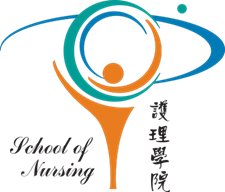Centre of Evidence-based Practice for Health Care Policy: A JBI Affiliated Group

Centre of Evidence-based Practice for Health Care Policy: A JBI Affiliated Group
About Us
Welcome to the Centre of Evidence-based Practice for Health Care Policy: A JBI Affiliated Group
Welcome to the Centre of Evidence-based Practice for Health Care Policy: A Joanna Briggs Institute (JBI) Affiliated Group. Our Centre is hosted by the School of Nursing at The Hong Kong Polytechnic University, a world leader in gerontological, mental health, cancer and palliative care and community health services research. We believe the addition of the JBI group based at PolyU will be integral in developing new research questions to address some of the key health priorities affecting Hong Kong and the Greater Bay Area’s population. We also see our JBI group being prominent leaders in developing and advancing cost-effective and improved evidenced based practice. Our focus is not only on knowledge generation and translation but, also through systematic review and evidence implementation education.
Our JBI team consists of experienced researcher’s in both qualitative and quantitative research methods along with advanced practice nurses from our clinical partners. We are part of a bigger Asia collaboration of JBI Centres of Excellence and Affiliated Groups and as the newest group we are proud to be part of this entity. Being a JBI affiliated group allows us to be strategic in identifying those key priority areas along with our key stakeholders in providing both the implementation and translational basis of nursing research based on the outcomes of our systematic reviews, meta-analysis and meta-syntheses.
Our mission is to:
“Develop clinical practice through active engagement in evidence-based knowledge generation, translation and implementation, clinical education, quality improvement and research”
Our vision is to:
“Focus on embedding evidence-enhanced practice through building organisational infrastructure to support and promote an evidence-based environment”
In particular our Groups objectives are threefold, to:
- Support future and ongoing development of the nursing team in terms of translational research and evidence based systematic review training
- Support the development of nursing practice by creating an environment of collaborative evidenced-based practice using translational research and practice development principles and
- Support the development of service processes by establishing a test bed for new ideas and approaches to different models of working and care delivery within a nursing context.
Research & Publications
Please put at least one valid content allocate to this component.
Contact Us
Centre of Evidence-based Practice for Health Care Policy: A JBI Affiliated Group
The Hong Kong Polytechnic University
Hung Hom, Kowloon
HKSAR
- +852 2766 4369
- jbi.sn@polyu.edu.hk



























